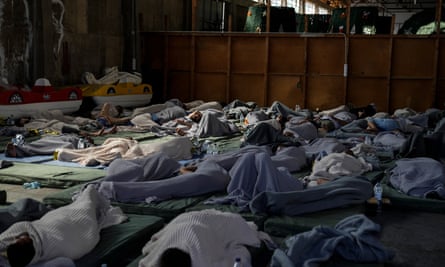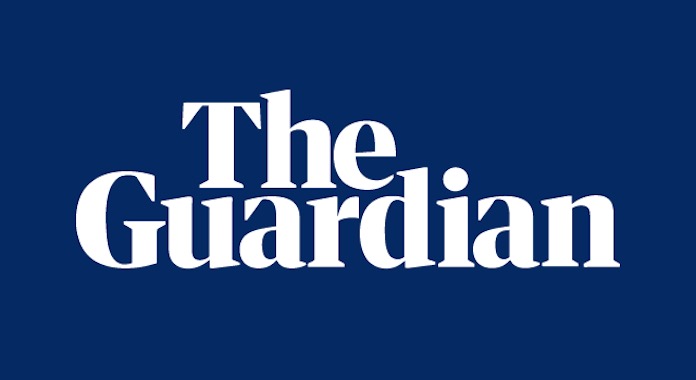Suspected people smugglers to appear in court in Kalamata, as police in Kashmir announce 10 arrests
*First Published on the Guardian
Nine suspected people smugglers are to appear before a Greek court accused of piloting the fishing trawler that sank off the coast of Greece last week leaving hundreds missing and presumed dead in one of the Mediterranean’s worst boat disasters.
Greek authorities have said 78 dead and 104 survivors – mostly from Syria, Afghanistan, Egypt and Pakistan – were brought ashore after the overcrowded boat sank about 50 miles (80km) off the southern Greek town of Pylos early on Wednesday, days after it set sail from Tobruk in Libya heading towards Italy.
More than 500 people are believed missing, including many children, and relatives are still seeking information after the boat sank in one of the deepest parts of the Mediterranean.
After it emerged that dozens of Pakistanis were among those onboard the trawler, Pakistan’s prime minister, Shehbaz Sharif, ordered an immediate crackdown on agents engaged in people smuggling, saying they would be severely punished.

Sharif said Monday would be a day of mourning in Pakistan, with the national flag flying at half staff. He previously said Pakistan’s embassy in Athens had identified 12 nationals who were rescued by the coastguard. There was no official information on exactly how many Pakistanis were onboard the vessel, how many survived and how many died. It is believed the total could be more than 200.
Greek authorities have been criticised for their failure to act more quickly. They say the boat’s occupants said they did not need any help, but NGOs say they received a number of calls for help. The sinking was one of the worst disasters of its kind this year.
Meanwhile, police in Pakistan-administered Kashmir said on Sunday they had arrested 10 people allegedly involved in sending local youths to Libya for the onward journey to Europe. Officials said nine people had been detained in Kashmir and one in Gujrat, a city that has long served as a springboard for migrants. “They are presently under investigation for their involvement in facilitating the entire process,” Chaudhary Shaukat, a local official, told AFP.
In a joint statement, the International Organization for Migration and the UN’s refugee agency, UNHCR, said between 400 and 750 people were believed to have been onboard the vessel. The UN agency said it could be the second deadliest refugee and migrant shipwreck recorded, after the April 2015 capsizing of another vessel on the Libya-Italy route that killed an estimated 1,100 people.
Ministers from France and Germany travelled to Tunisia on Sunday evening for talks on regulating migration and measures to try to prevent deaths on dangerous routes across the Mediterranean. Tunisia, which is neighbour to Libya, from where the sunken trawler set sail, is a major north African stepping stone for people trying to reach Europe.
The German interior minister, Nancy Faeser, was travelling to Tunisia with her French counterpart, Gérald Darmanin. Faeser’s office said: “We want to create legal migration routes in order to remove the basis for the inhumane business of smugglers. We want the human rights of refugees to be protected and the terrible deaths on the Mediterranean to stop.”
People from African countries have been undertaking perilous sea crossings from Tunisia to Europe in unprecedented numbers, and European authorities are seeking reinforced action from the government of Tunisia’s increasingly autocratic president, Kais Saied.
In the first three months of this year, Tunisian authorities intercepted 13,000 people on boats off Tunisia’s eastern port city of Sfax, a main route to Europe.
In Athens, anger has mounted as questions continue to be raised over the Hellenic coastguard’s reluctance to intervene despite the vessel being in international waters. Glaring inconsistencies in the information officials have so far released have fuelled accusations that Greek authorities may have deliberately held back to avoid so many people coming ashore.
Greece heads to general elections on 25 June. Its centre-right New Democracy party, in power for the last four years and tipped to win the poll, has taken a tough stand on migration, with border officials frequently accused of engaging in pushbacks, or forcible expulsions, under its watch.
The coastguard, tasked with overseeing the inquiry into the disaster, has been put on the defensive by the lack of video footage to support its version of events.
When the rusty 25-metre trawler began to capsize after its engine stalled and it had started to list, a coastguard patrol boat dispatched to the area intervened.
“Where is the video, the video [footage] that should have been taken of the [rescue] operation?” asked Christos Spirtzis, a former transport minister. “That is the key question.”
Last week when pressed on the issue, Nikos Alexiou, the Greek coastguard’s spokesperson, responded: “The vessel’s cameras were operable but the operation wasn’t recorded [on video]. There is no recording.”
Three days after the incident, a government spokesperson admitted that shortly before the sinking a rope was thrown to the stricken boat, prompting speculation that attempts by the coastguard to tug the trawler caused it to keel over – an accusation the coastguard strongly denies.
Before the suspected smugglers’ appearance in Kalamata’s district court on Monday – on charges ranging from provoking a shipwreck to negligent mass murder – the president of the town’s lawyers’ association said answers were needed.
“There are a lot of questions over the way this was handled,” Kostas Margelis said. “And we need to start by asking whether, at the critical moment, the coastguard did the right thing.”

